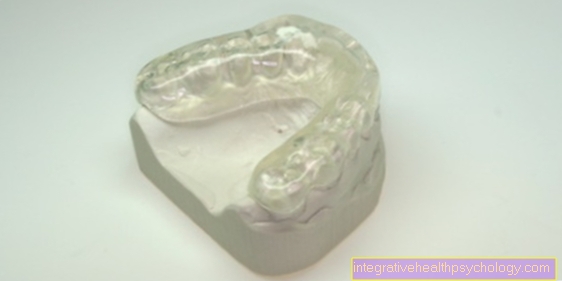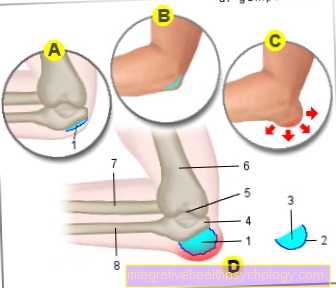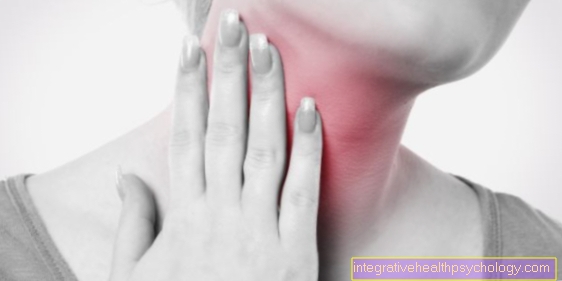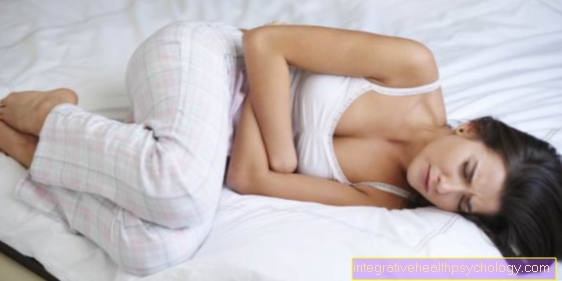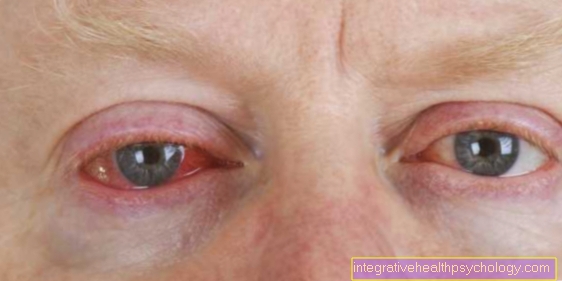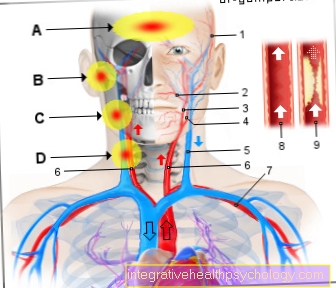Diarrhea after taking the pill
introduction
The active ingredients or hormones of the birth control pill are absorbed by the cells in the stomach and intestines and then transferred into the bloodstream. The gastrointestinal tract therefore plays an essential role in the process of hormone uptake and transmission of the birth control pill. In the case of gastrointestinal diseases or other causes of diarrhea, the effectiveness of the pill can be compromised. The reason for this is that the cells simply do not have enough time to absorb the substances contained in the birth control pill. In addition to diarrhea, a loss of effectiveness of the pill should also be considered if vomiting occurs.

When is the effectiveness at risk?
It takes some time for the gastrointestinal cells to absorb a sufficient amount of hormones and release them into the bloodstream. If diarrhea occurs 3-4 hours after ingestion, the effectiveness of the pill and thus contraceptive protection are no longer guaranteed. People who suffer from diarrhea a short time after taking the pills should therefore take additional contraceptive protection during sexual intercourse.
Can I just take another pill?
The possibility of “taking” the contraceptive pill depends on the preparation used. The combination pills that are very common today usually have a tolerance time of approx. 12 hours and thus theoretically allow the pill to be taken again. Other forms of birth control pills, such as the mini pill, do not offer this option. When “taking” a pill, it is important to find out exactly what the preparation is in advance to ensure that it is possible or even sensible to continue taking it. First and foremost, it is advisable to read the package insert carefully. If anything is unclear or if you have any questions about the safety of the pill, the attending gynecologist (gynecologist) should be consulted.
What can I do if I want to take the morning-after pill but have diarrhea?
As an emergency preparation, the morning-after pill also needs some time before it can develop its effect in the body. If diarrhea occurs within 3-4 hours after ingestion, the desired effect is no longer given. In such cases, it is advisable to continue taking the morning-after pill. This is best done in consultation with the attending gynecologist. If the diarrhea persists, the morning-after pill is completely unsuitable. In such cases, another emergency contraception should be used. One possibility is, for example, the use of a copper chain at the gynecologist.
Also read our topic: Effect of the morning-after pill
When does the pill provide protection again if I have had diarrhea?
The protection of the pill depends not only on the preparation used, but also on the duration of the diarrhea. As a rule, the contraceptive pill needs about 6 hours to be absorbed by the body and to develop its effect. If diarrhea occurs in this time window, the contraceptive protection is no longer given. With many so-called combination preparations, however, there is then the option, provided that diarrhea does not occur again, to simply take the pill within 12 hours and thus maintain protection. With other forms of birth control pills, such as the so-called mini pill, the time window is much smaller. If there is no renewed intake within 2-3 hours, adequate protection can no longer be assumed. Those affected should then use another contraceptive.
If the diarrhea lasts for more than a day, it can be assumed that there is insufficient intake of hormones and, regardless of the pill preparation used, contraception should be supplemented by other contraceptives. A second method of contraception, such as the use of condoms, should then be used at least until the onset of the next menstrual period. If you have any questions about the effectiveness of the birth control pill, or if you have diarrhea, you should always contact your gynecologist to be on the safe side.


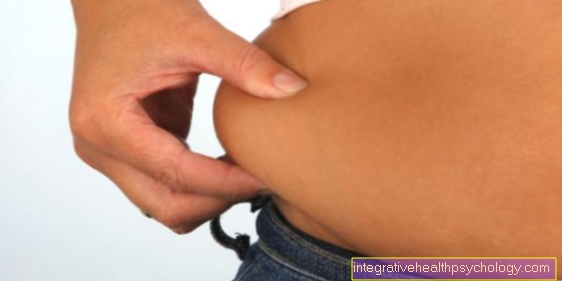







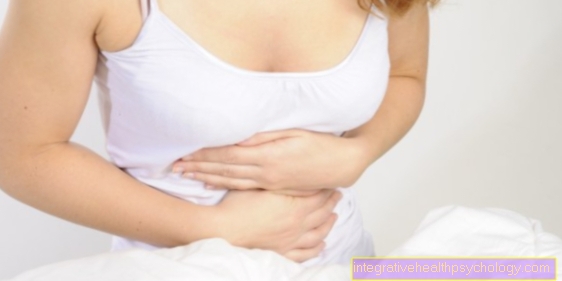

.jpg)
